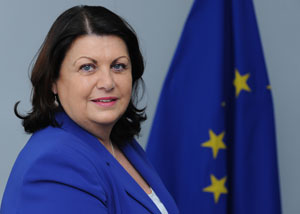Why has Africa become a net food importer? Explaining Africa agricultural and food trade deficits.Manitra A. Rakotoarisoa, Massimo Iafrate, Marianna Paschali
Trade and markets division food and agriculture organization of the united nations
ISBN 978-92-5-107088-8
© FAO 2012, 97 pages
Food import dependency is viewed differently depending on each individual country’s ability to pay its food import bill. For some oil or mineral rich countries (e.g. Botswana, Libya) or for some of the relatively more industrialized countries (e.g. Mauritius), importing some types of food products (like fruits and vegetables) seems more beneficial than producing these products at home, especially since they have enough foreign currency reserves to pay for the food import bills. But for cash-strapped countries (e.g. Burundi, Central African Republic, Eritrea), persistent food import becomes a problem when the high and rising food import bills take money away from other important development agendas without resolving food insecurity.
The problem is even bigger for countries where exports rely mainly on agriculture but the revenues from
traditional exports such as cocoa, coffee and spices are less certain and at the mercy of volatile international market prices.
The objective of the investigation documented in this report was to review the state of African food and agricultural trade and to explore some of the
main causes of Africa food import dependency and slow growth of agricultural and food exports.
Specifically, the aim was to:
- update the information on past and recent trends in Africa’s food and agricultural production, consumption, and trade;
- review and explore some of the various explanations of African food import and export trends and especially the persistence of rising food imports;
- discuss what, if necessary, can be done to reverse the African food deficit trend or to solve the problems caused by it.
The focus is on the 53 African countries : Algeria, Angola, Benin, Botswana, Burkina Faso, Burundi, Cameroon, Cape Verde, Central African Republic, Chad, Comoros, Democratic Republic of Congo, Congo, Cote d’Ivoire, Djibouti, Egypt, Equatorial Guinea, Eritrea, Ethiopia, Gabon, Gambia, Ghana, Guinea, Guinea-Bissau, Kenya, Lesotho, Liberia, Libya, Madagascar, Malawi, Mali, Mauritania, Mauritius, Morocco, Mozambique, Namibia, Niger, Nigeria, Rwanda, Sao Tome and Principe, Senegal, Seychelles, Sierra Leone, Somalia, South Africa, Sudan, Swaziland, Tanzania, Togo, Tunisia, Uganda, Zambia and Zimbabwe.
__________
* WHY HAS AFRICA BECOME A NET FOOD IMPORTER.pdf
http://dgroups.org/?c717h0zy - 3.0MB
.JPG)
.JPG)


.JPG)

































